7) Tools for
Logistics & Cargo Management
Information about the industry
Understanding logistics is crucial for exporters to ensure smooth deliveries and profitable deals. Shipping costs, transit times, and cargo capacity all impact the final price a buyer pays. By using logistics and cargo management tools, businesses can calculate the best container or truck loads, compare international freight quotes, and track shipments in real time. This helps exporters avoid delays, reduce costs, and ensure their goods reach customers efficiently.
Knowing logistics conditions also plays a key role in pricing. If shipping costs are underestimated, a company may face unexpected losses. On the other hand, overestimating costs can lead to high prices that drive customers away. By accurately calculating freight rates and transit times, exporters can offer competitive quotes, avoid financial risks, and increase their chances of winning international deals.

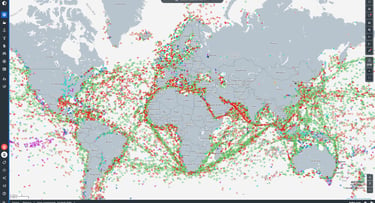
1. Marine Traffic
Free is enough
MarineTraffic is a leading vessel tracking service that provides real-time information on ship movements and port activities worldwide.
It offers features like live vessel tracking, port congestion analysis, and maritime analytics, benefiting exporters and international traders in optimizing logistics and supply chain operations.
The Standard Plan starts at $19 per month, billed annually, offering essential vessel tracking features. The Professional Plan costs £59 per user/month, providing advanced functionalities such as notifications, fleet management, satellite tracking, and voyage data.

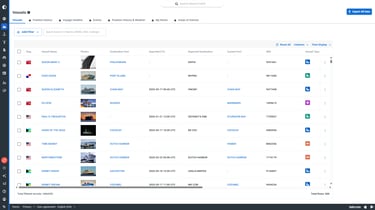
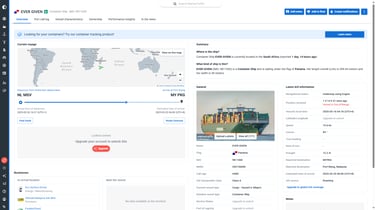
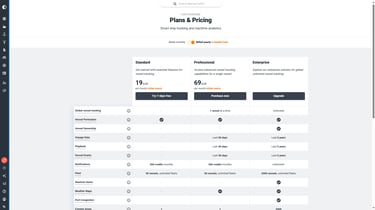




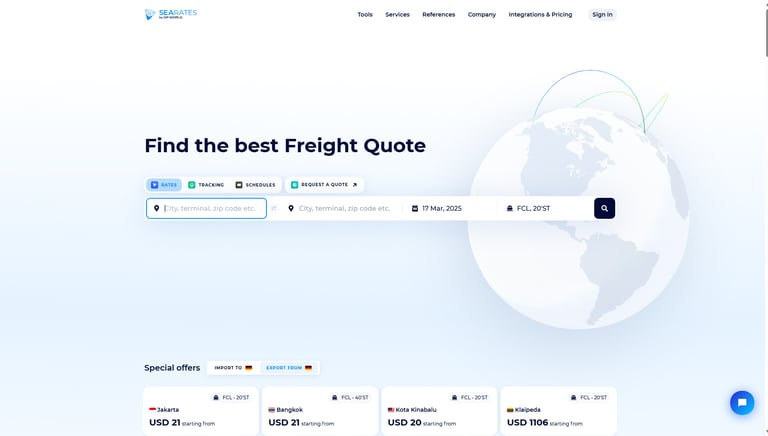

2. SeaRates
Free is enough
SeaRates is a comprehensive online freight marketplace that enables exporters and international traders to compare shipping rates, book cargo transportation, and track shipments across sea, air, and land.
It offers a suite of tools, including a freight calculator, container tracking, and ship schedules, to streamline logistics and supply chain management.
Pricing varies based on services and usage. For example, the SeaRates Tools have a one-time fee of £399, while other services may follow different pricing models.
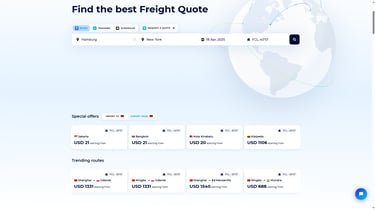
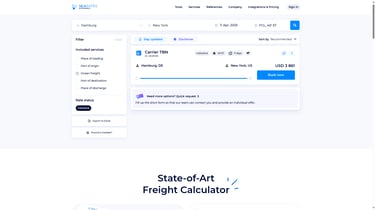

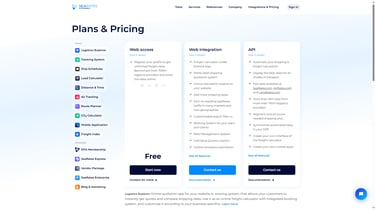




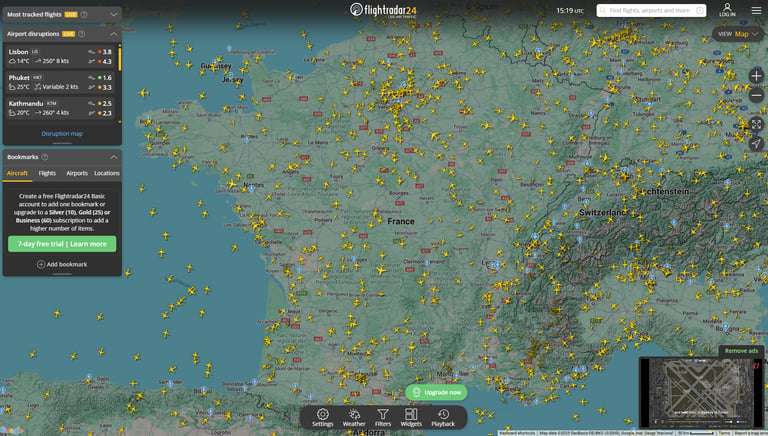

3. FlightRadar24
Free is enough
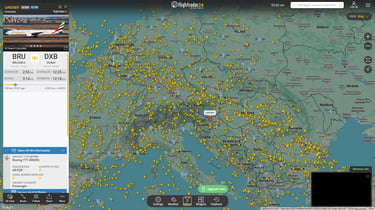
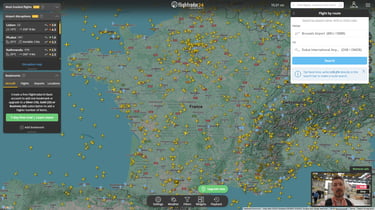
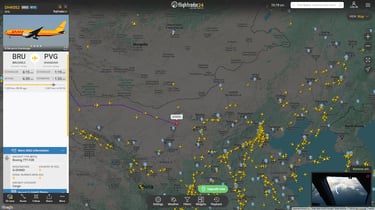
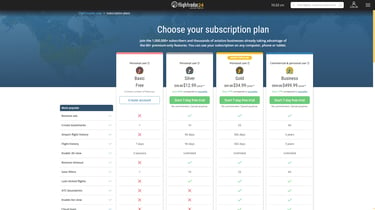




Flightradar24 is a global flight tracking platform that allows exporters to monitor cargo planes transporting their goods internationally. It provides real-time tracking of air freight shipments to ensure smooth logistics and timely deliveries.
The platform offers detailed flight routes, estimated arrival times, and aircraft information, helping exporters stay informed about potential delays or disruptions in their supply chain.
Pricing starts at $9.99 per month for the Silver Plan, which includes enhanced tracking features, while higher-tier plans offer more advanced data insights.
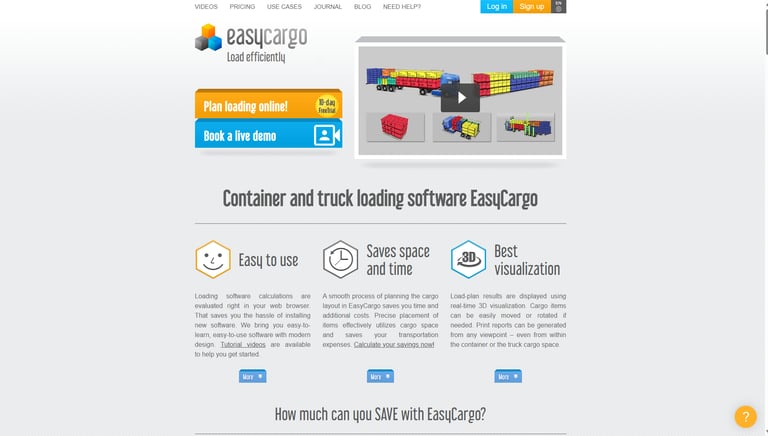

4. Easy Cargo
Freemium
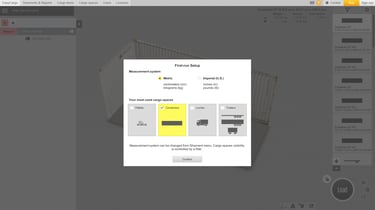
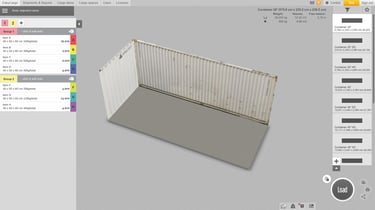
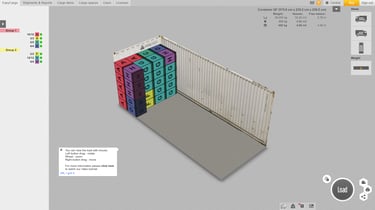
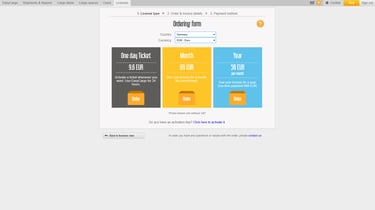




EasyCargo 3D is a cargo load planning tool that helps exporters optimize container and truck space, reducing shipping costs and improving efficiency.
It provides a 3D visualization of cargo arrangements, ensuring that products are loaded safely and efficiently while maximizing available space.
Pricing starts at €29 per user/month, with options for prepaid credits and enterprise plans for larger logistics operations.
Why is logistics management important for exporters?
Efficient logistics management helps reduce shipping costs, prevent delays, and ensure products reach customers safely. Proper planning can also help you avoid unnecessary storage fees and customs issues.
How can I track my shipments in real time?
Many online platforms allow you to track vessels, trucks, and flights, giving you real-time updates on your cargo’s location and estimated arrival time.
What factors should I consider when choosing a freight forwarder?
Experience in handling international shipments
Pricing and transparency in costs
Network coverage in your target markets
Customer support and response time
How can I reduce shipping costs?
Optimizing container space, consolidating shipments, and comparing freight quotes from multiple providers can help lower logistics costs.
What is the difference between air freight and sea freight?
Air freight is faster but more expensive, while sea freight is cost-effective for large shipments but takes longer. The choice depends on your budget, shipment size, and delivery urgency.
How do I calculate the best way to load my cargo?
Some tools allow you to visualize and optimize cargo placement in containers or trucks, helping you maximize space and reduce wasted capacity.
What are common customs-related issues in shipping?
Incorrect HS code declarations
Missing or incomplete shipping documents
Import restrictions in the destination country
How can I ensure my shipments arrive on time?
Plan ahead by considering transit times, possible customs delays, and peak seasons. Working with reliable shipping partners also minimizes risks.
What documents are needed for international shipping?
Commercial invoice
Bill of lading or airway bill
Packing list
Certificate of origin (if required)
Customs declaration forms
How can I prevent cargo damage during shipping?
Use proper packaging materials, secure fragile items, and ensure your goods are loaded correctly in the container or truck to prevent movement.
How do I compare international freight quotes?
Get quotes from multiple carriers, compare shipping times, hidden costs, and insurance coverage before choosing the best option.
What is multimodal transportation, and when should I use it?
Multimodal transport combines different shipping methods (e.g., sea + rail or air + truck) to optimize costs and delivery times. It’s useful when direct shipping is not available.
How can I calculate import duties and taxes before shipping?
Use online duty calculators that factor in HS codes, product type, and destination country’s tax regulations to estimate costs accurately.
What should I do if my shipment is delayed?
Contact your shipping provider for an update, check for customs issues, and communicate with your buyer about the revised delivery time.
Is cargo insurance necessary for international shipments?
Yes, cargo insurance protects you from financial losses due to damage, theft, or unexpected events during transit.
What is the difference between FCL and LCL shipping?
FCL (Full Container Load): A single company fills an entire container.
LCL (Less than Container Load): Cargo from multiple shippers is combined in one container.
How do I choose between express and standard shipping?
Express shipping is faster but more expensive, ideal for urgent orders. Standard shipping is cheaper and suitable for non-time-sensitive deliveries.
Can I track air cargo like I track sea shipments?
Yes, there are tools that allow you to track air freight in real time, including flight paths and estimated arrival times.
